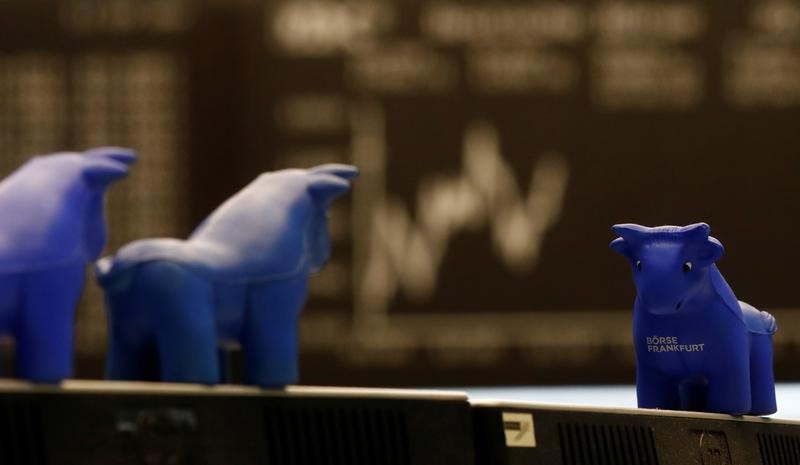This post was originally published on this site

Investing.com – European stock markets edged largely higher Monday, starting the new week on a positive note despite the Wall Street holiday limiting activity.
By 03:40 AM ET (0740 GMT), the DAX in Germany traded 0.1% lower, while the CAC 40 in France rose 0.5%, and the UK’s FTSE 100 climbed 0.9%.
Global markets are trying to take a more positive view at the start of the second half of the year, after suffering sharp losses year-to-date as tightening government policies and rising living costs suggested an elevated risk of the global economy heading into a growth slowdown.
That said, it’s difficult to see these gains lasting for long as the latest German trade data illustrated the difficulties the Eurozone’s main growth driver is having to battle.
Germany posted its first monthly trade deficit in over 30 years in May as the price of its oil and gas imports soared as a result of Russia’s war in Ukraine. At the same time, exports fell for the third time in five months, not helped by the COVID restrictions in parts of China, one of Germany’s main export markets.
Activity will be limited Monday, given the July 4th holiday in the United States and ahead of the keenly awaited monthly U.S. employment report.
Recent economic data has added to signs that the U.S. economy, a key global growth driver, is cooling amid aggressive policy tightening by the Fed, so Friday’s nonfarm payrolls report will be studied carefully for how the labor market is performing, given the Fed’s inflation/employment mandate.
In corporate news, Ryanair (IR:RYA) stock rose 2% after the budget airline reported its busiest month ever in June as it flew 15.9 million passengers, up from just 5.3 million a year earlier and topping a previous high set in May.
Oil prices edged higher Monday as traders digested concerns over a possible U.S. economic slowdown, along with underlying supply tightness.
Fed chair Jerome Powell spoke of the central bank’s “unconditional” commitment to reining in inflation last week while also acknowledging the risk of pushing the U.S. economy, the largest consumer of crude in the world, into recession.
That said, oil supply concerns still remain, with Libya facing further disruption due to escalating political unrest, some Norwegian oil workers striking, and the Organization of Petroleum Exporting Countries and allies struggling to make its newly increased production quotas.
By 03:55 AM ET, U.S. crude futures traded 0.1% higher at $108.53 a barrel, while the Brent contract rose 0.2% to $111.82.
Additionally, gold futures rose 0.5% to $1,809.55/oz, while EUR/USD traded 0.1% higher at 1.0431.

